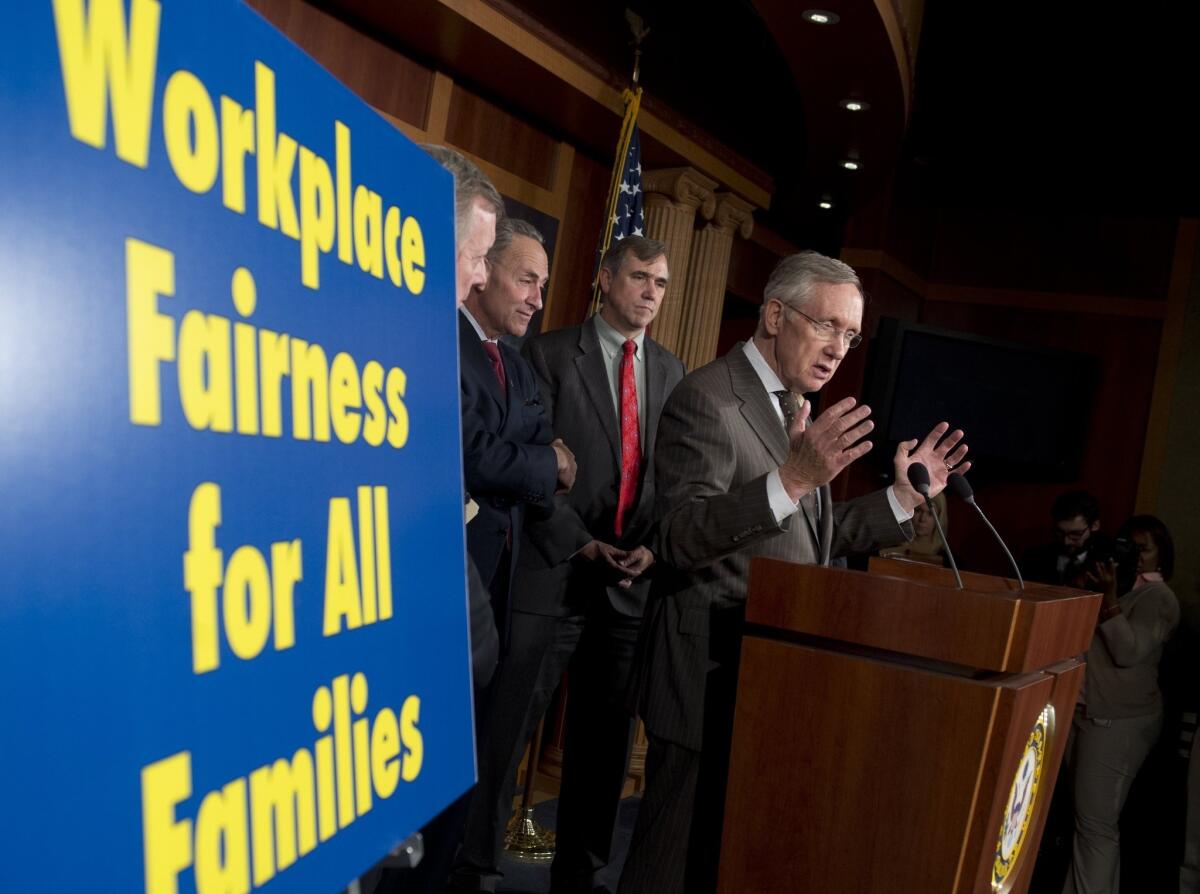A rundown of LGBT workplace discrimination statistics

Earlier this month, the U.S. Senate approved legislation, 64-32, that would prohibit workplace discrimination based on sexual orientation or gender identity.
The Employee Non-Discrimination Act, or ENDA for short, was first introduced in 1994 and has been brought up time and time again in Congress but went nowhere.
The legislation is now before the U.S. House of Representatives, but it faces tough odds there. House Speaker John Boehner has said there is “no basis or need” for the legislation and it’s unclear whether the Republican leader will let the bill come up for a vote.
Currently, only 21 states have protections for LGBT employees. UCLA’s Williams Institute on Thursday issued a report that the group says highlights the need for such federal legislation.
Here’s a rundown of their data:
-- 4%. The percentage of the U.S. workforce that identifies as lesbian, gay, bisexual or transgender.
-- 21%. That’s the percentage of LGBT employees who report having been discriminated against in hiring, promotions and pay.
-- 47%. That’s the percentage of transgender employees who reported similar discrimination at work.
-- $0.68-$0.90. That’s how much gay and bisexual men make for every dollar earned by similarly-qualified heterosexual men.
-- One out of every 25 complaints made about workplace discrimination comes from LGBT employees.
-- 96%. That’s the percentage of Fortune 500 companies that have LGBT workplace protections who say such policies have boosted their businesses. Fortune 500 executives, including Apple CEO Tim Cook, have said such workplace policies boost productivity, increase retention rates and and attract talent.
ENDA’s fate in Congress remains to be seen, but the Obama Administration said it’s pushing the House to take up the bill.
ALSO:
Bitcoin now accepted as tuition payment at a Cyprus university
Rising home prices lift L.A.-area homeowners from negative equity
Treasury sells more GM stock, expects to sell the rest by year’s end
More to Read
Inside the business of entertainment
The Wide Shot brings you news, analysis and insights on everything from streaming wars to production — and what it all means for the future.
You may occasionally receive promotional content from the Los Angeles Times.











